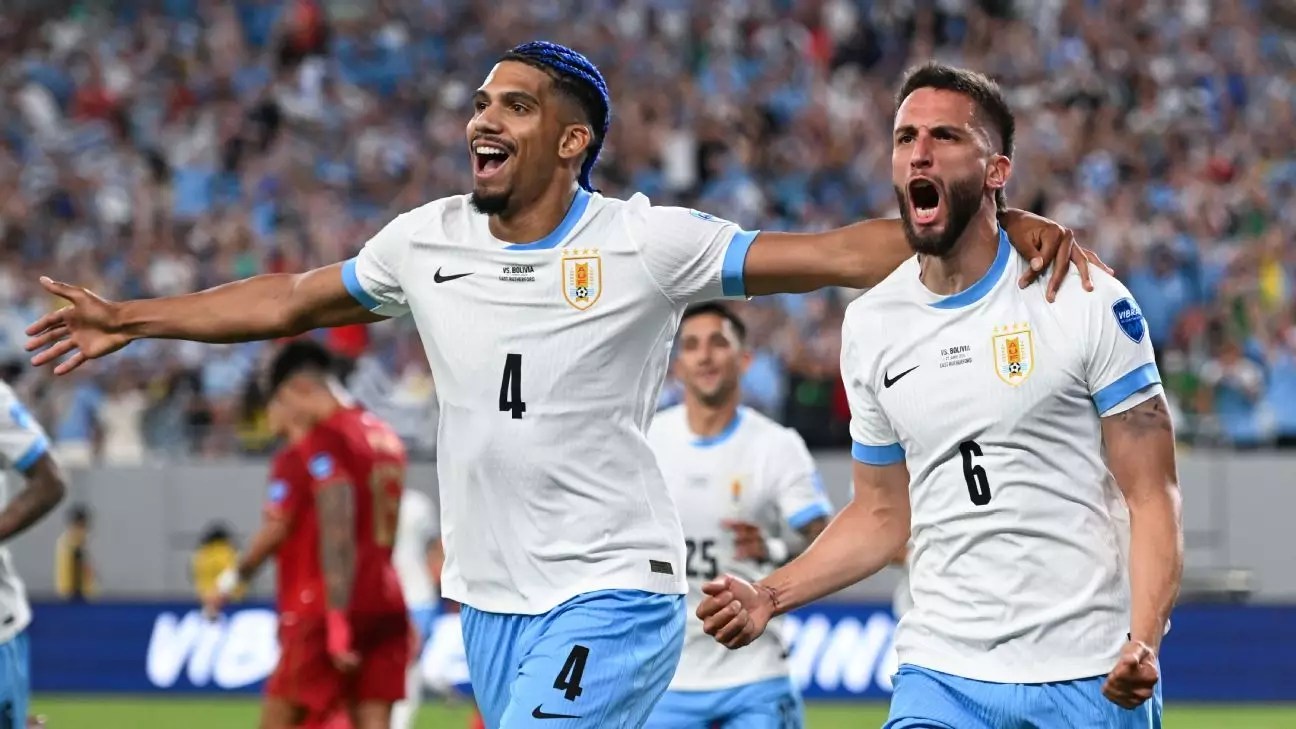Uruguay, a nation of just 3.5 million people, sits between football behemoths Argentina and Brazil, yet manages to achieve tremendous success in the world of soccer. The U.S., on the other hand, with a population of 340 million and abundant economic resources, finds itself in a mismatch when facing Uruguay. Despite the differences in population and resources, it is Uruguay that is expected to emerge victorious when these two teams meet on the field.
At the heart of Uruguay’s success lies the concept of Garra Charrúa. This warrior-like spirit is derived from the indigenous Charrúa people, who fiercely resisted the conquistadors in Uruguay. The Garra Charrúa instills a never-say-die attitude in Uruguayan soccer players, pushing them to give their all until the very end. It is a belief that transcends generations, ingrained in every player from birth. The spirit of Garra Charrúa is deeply rooted in the history and culture of Uruguay, providing a solid foundation for the country’s soccer prowess.
Uruguay’s rich history in soccer dates back to the early 1900s when they claimed the inaugural Copa América title in 1916. Subsequent victories at the Olympics and the FIFA World Cup solidified Uruguay’s status as a footballing powerhouse. The fusion of history and spirit has propelled Uruguay to greatness, with players and fans alike believing in the country’s unbeatable prowess on the field. This winning mentality has shaped the competitive nature of Uruguayan soccer, making every game a battle to be won.
Cultural Influence on Soccer
Soccer is deeply ingrained in Uruguayan culture, with fields scattered throughout the country and a passion for the sport evident in people of all ages. The tradition of playing football, be it on official fields or improvised spaces, runs through the veins of every Uruguayan. From childhood through adulthood, soccer is a way of life in Uruguay, shaping the nation’s identity and nurturing young talent from a very early age.
Uruguayan soccer has faced its share of challenges over the years, including periods of not qualifying for major tournaments. Recognizing that the Garra Charrúa alone was not enough, the country underwent a transformation under the leadership of Oscar Tabarez. Tabarez’s reforms revitalized the youth system, encouraged players to seek opportunities abroad, and ushered in a new generation of talented individuals, including the likes of Edinson Cavani and Luis Suárez. Despite controversies such as Suárez’s infamous handball in the 2010 World Cup, Tabarez remained the guiding force behind Uruguay’s success.
A New Era Under Marcelo Bielsa
Following Tabarez’s tenure, Marcelo Bielsa, nicknamed “El Loco” for his bold attacking style, took the reins of the Uruguayan national team. Bielsa’s tactics prioritize quick transitions and aggressive offensive play, challenging opponents both physically and mentally. With Bielsa at the helm, Uruguay aims to dominate matches and assert their presence on the field. The team’s adaptation to Bielsa’s high-intensity approach requires a new level of commitment and skill on the part of the players.
Challenges for the U.S.
As Uruguay prepares to face off against the U.S., American players must be prepared to match the intensity and aggression of their opponents. Bielsa’s tactical approach demands focus and physicality, requiring the U.S. team to step up their game in order to compete. The enduring spirit of Garra Charrúa remains a key factor in Uruguay’s success, serving as a reminder to the U.S. team of the resilience and determination needed to excel in international soccer.
The Garra Charrúa spirit of Uruguayan soccer embodies a relentless pursuit of victory, rooted in history, culture, and unwavering passion for the sport. As Uruguay continues to evolve and adapt under new leadership, the essence of Garra Charrúa remains a constant force driving the country’s soccer success. The U.S. and other competing teams must acknowledge and respect this spirit as they face Uruguay on the field, recognizing the formidable challenge posed by a nation that refuses to back down in the pursuit of victory.


Leave a Reply